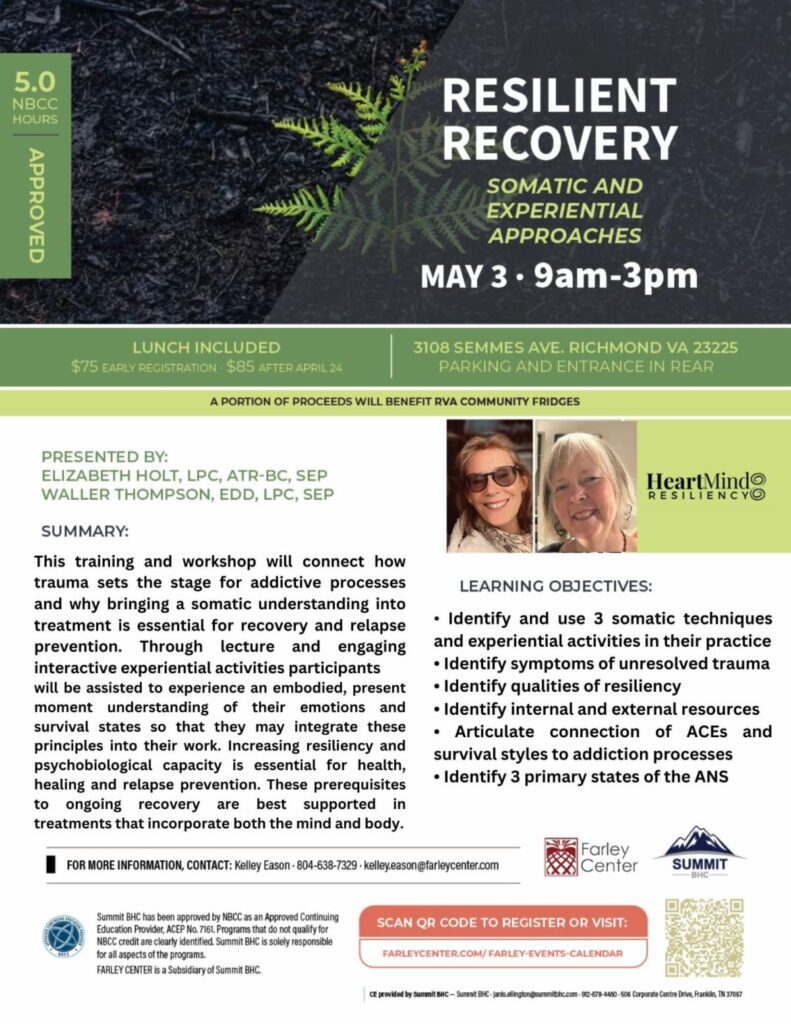Professional Development and Education
The Farley Center hosts both in-person and virtual professional development and educational resources for individuals in the addiction recovery industry.
Why attend a professional development event?
Professional development in the addiction recovery industry is crucial for individuals working in roles such as addiction counselors, therapists, social workers, healthcare professionals, and other support staff. Staying current with evidence-based practices, understanding emerging trends, and honing interpersonal skills are essential for providing effective support to individuals recovering from addiction.
What are the benefits of participating in a professional development event for addiction recovery?
By investing in ongoing professional development, individuals in the addiction recovery industry can enhance their effectiveness, contribute to positive outcomes for clients, and stay resilient in a challenging but rewarding field.
Events are updated frequently, check back often to see the latest training series and register today.
 Resilient Recovery: Somatic and Experiential Approaches
Resilient Recovery: Somatic and Experiential Approaches
Date and Time:
May 03, 2024
9:00 am – 3:00 pm
Location:
HeartMind Resiliency, LLC
3108 Semmes Ave, Richmond, VA 23225
(Driving Directions)
Presented by:
ELIZABETH HOLT, LPC, ATR-BC, SEP
WALLER THOMPSON, EDD, LPC, SEP
Summary:
This training and workshop will connect how trauma sets the stage for addictive processes and why bringing a somatic understanding into treatment is essential for recovery and relapse prevention. Through lectures and engaging interactive experiential activities participants will be assisted in experiencing an embodied, present-moment understanding of their emotions and survival states so that they may integrate these principles into their work. Increasing resiliency and psychobiological capacity is essential for health, healing, and relapse prevention. These prerequisites to ongoing recovery are best supported in treatments that incorporate both the mind and body.
Learning Objectives:
Identify and use 3 somatic techniques and experiential activities in their practice.
Identify symptoms of unresolved trauma.
Identify qualities of resiliency.
Identify internal and external resources.
Articulate connection of ACEs and survival styles to addiction processes.
Identify 3 primary states of the ANS.
Contact
Kelley Eason
